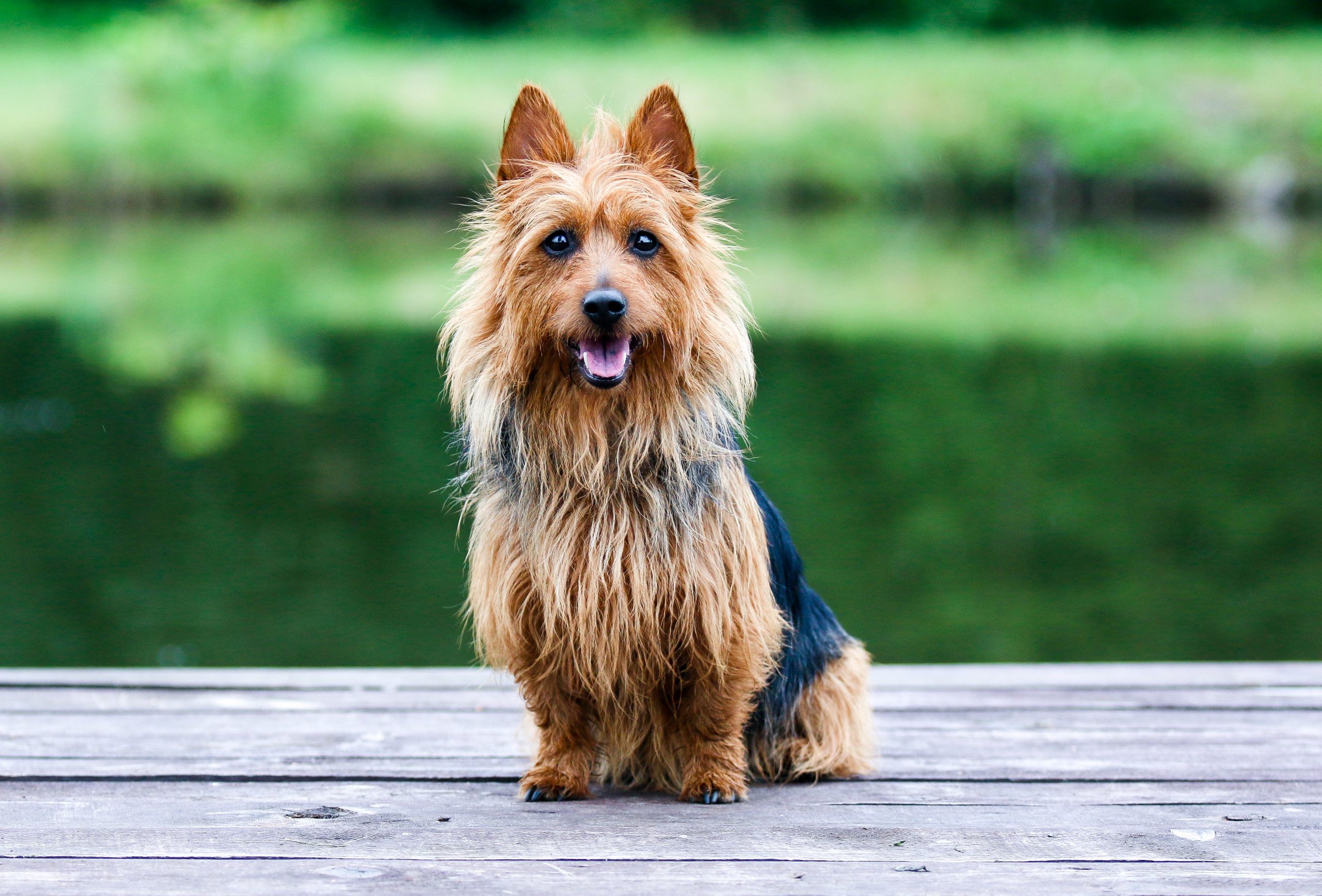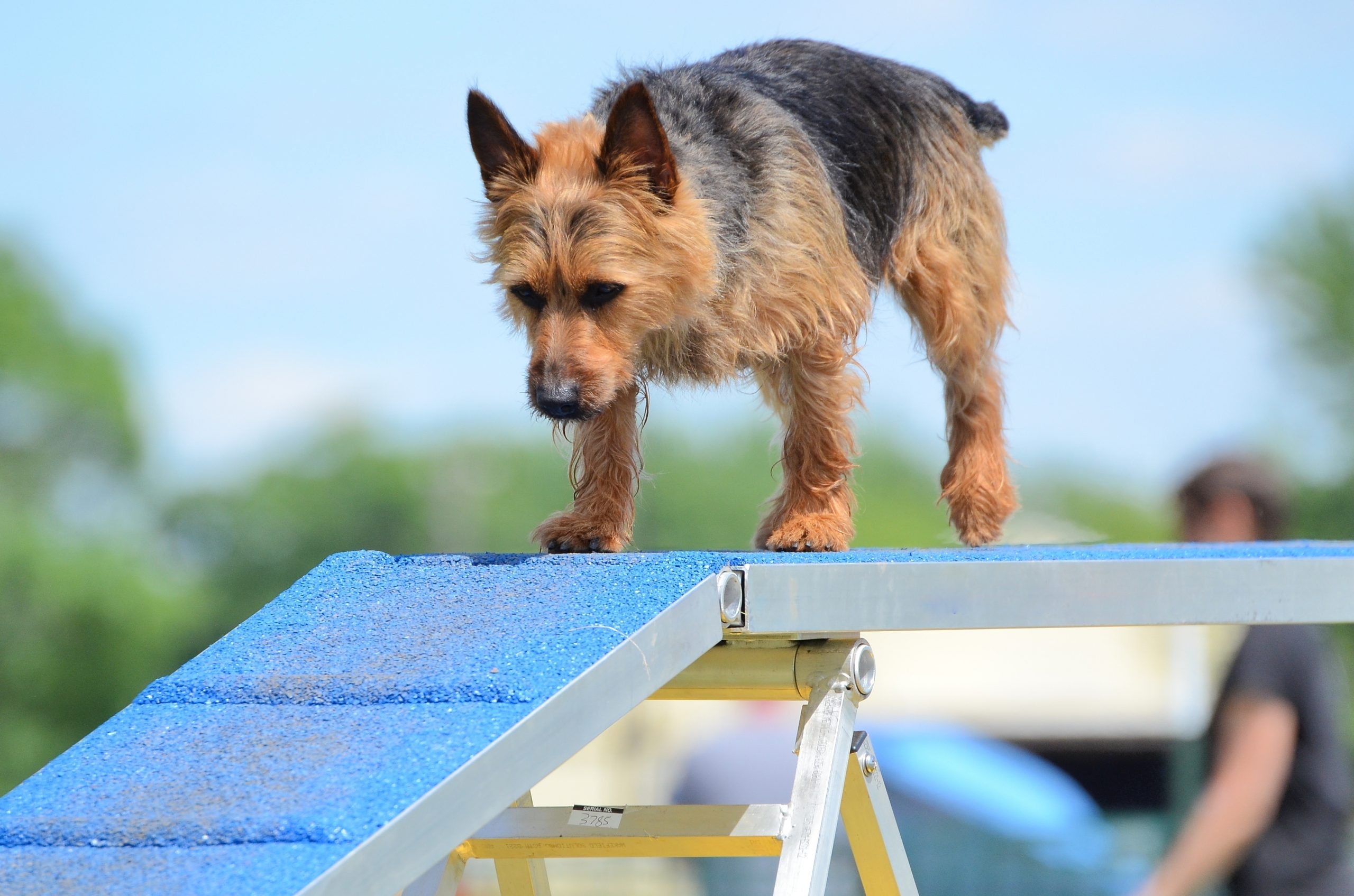Australian Terrier
No products found which match your selection.
Shelter Dog Meal Donation Count:
No products found which match your selection.
The Australian Terrier is a small but sturdy and versatile breed, known for its ability to hunt rodents and snakes. They are affectionate and loyal companions, ideal for active families or individuals.
Originally bred to hunt rodents and snakes, Australian Terriers are adept at digging and chasing. They are adaptable and can thrive in both rural and urban environments.

Developed in Australia in the 19th century, the Australian Terrier was created from a mix of several terrier breeds. They were one of the first breeds recognized and shown in Australia.




Generally, it is a healthy breed but can be prone to patellar luxation, diabetes, and allergies. Regular health check-ups and screenings are recommended.
Their coat requires regular brushing and occasional stripping to maintain its condition. Bathing should be done as needed, but not too frequently, to maintain the natural oils in the coat.
They require daily exercise, such as walks, play sessions, and exploration opportunities. Their high energy levels make them well-suited for active families or individuals.
Training should start early and be consistent. They respond well to positive reinforcement methods.
A balanced diet is appropriate for their size and activity level. Care should be taken to monitor food intake to prevent obesity.
Caring for an Australian Terrier requires commitment, particularly regarding exercise and grooming. They thrive in environments where they can be part of the family and have physical and mental stimulation opportunities. With the proper care, they make lively, affectionate, and loyal companions.
The Australian Terrier, known for its small size and spirited personality, is generally a robust and healthy breed. However, like all dog breeds, they are predisposed to specific health conditions. Awareness of these health issues and conducting recommended tests can help maintain their well-being.
Regular veterinary check-ups are essential to catch any health issues early, and prompt attention to changes in your dog's behavior or appearance is key. With proper care and attention to health, Australian Terriers can lead happy, healthy lives as beloved members of their families.
The iHeartDogs Free Rx Discount Card Program is a pet prescription discount card that can help you save money on your furry friend’s medications. The card is free to sign up for, and you can use it at participating pharmacies nationwide. To use the free program, simply show the card to your pharmacist when you pick up your pet’s prescription. The pharmacist will then scan the card, and you will receive a discount on the price of the medication.LEARN MORE
Caring for an Australian Terrier involves various annual expenses, which can vary depending on your location, the individual dog’s needs, and the level of care you choose to provide. Here’s a general breakdown of the annual costs for an Australian Terrier:
Total Estimated Annual Cost:
$2300 - $5700
It's important to note that these figures are estimates and can vary. Also, the first year of owning a dog can be more expensive due to one-time costs like spaying/neutering, initial vaccinations, and training. Regular budgeting for your dog's needs and an emergency fund for unforeseen costs are essential for responsible pet ownership.